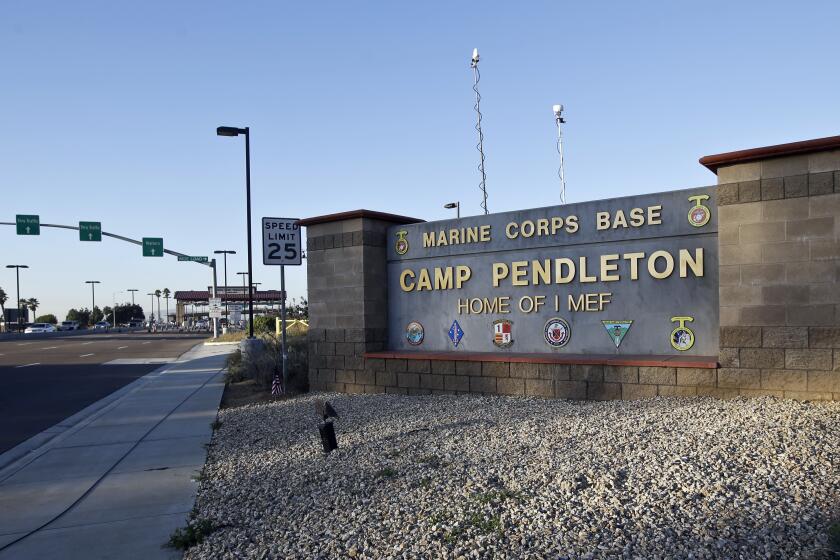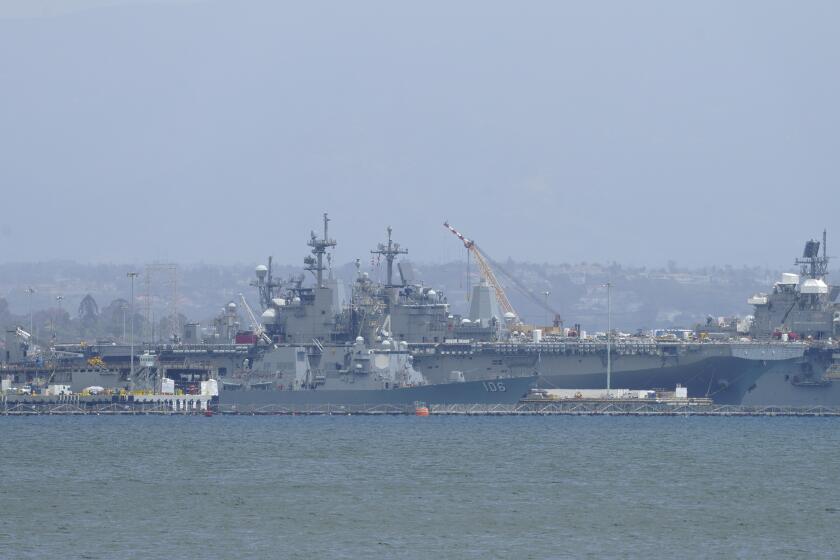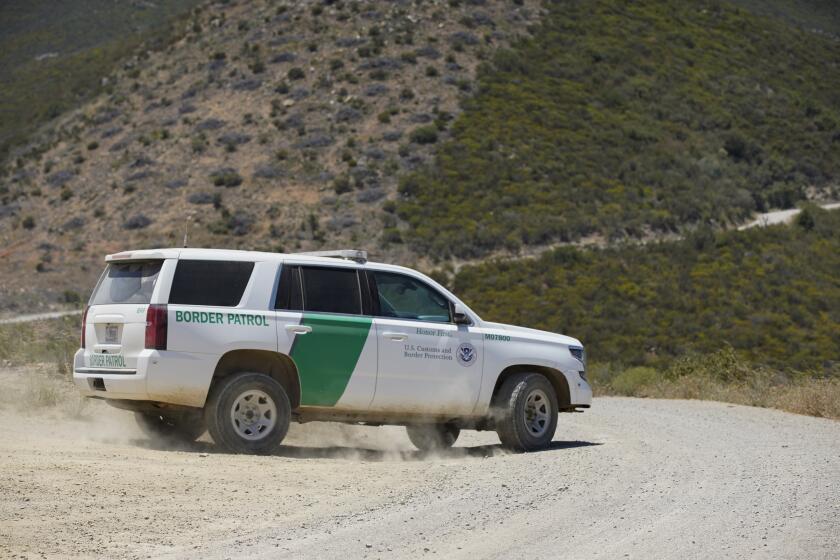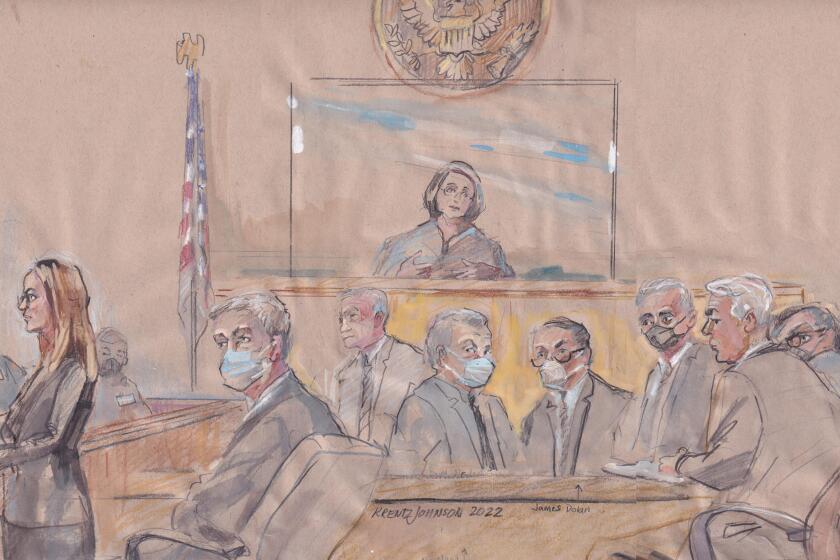Navy Cross bestowed on heroic Marine
As Americans observed Memorial Day 2012, Marine Gunnery Sgt. Richard Jibson was fighting for his life, his fellow Marines and dozens of Afghan and Georgian forces nearly 8,000 miles away in Afghanistan.
During a ferocious small-arms battle with anti-government Taliban fighters that would drag on for more than five hours, Jibson repeatedly put himself in the line of fire, including charging into a machine gun fusillade to rescue a critically wounded Marine.

IN MAY 2012, SGT. RICHARD A. JIBSON LAID DOWN COVER FIRE FOR MARINES TRYING TO NEUTRALIZE AN I-E-D, THEN REPEATEDLY LEFT A SAFE POSITION EXPOSING HIMSELF TO GUNFIRE ON AND OFF FOR FIVE HOURS. WHEN A FELLOW MARINE WAS SHOT IN THE HEAD, JIBSON CHARG
Those heroic actions were recognized Tuesday when was bestowed with the Navy Cross, the second highest award a Marine can receive for battlefield bravery.
“I’m extremely honored and humbled,” the unassuming Michigan native told hundreds of fellow troops, dignitaries and family members gathered at the Marine Air Ground Combat Center in Twentynine Palms to witness the medal ceremony.
In a later interview with U-T San Diego, the 34-year-old reflected that same humility, saying was simply responding to his training.
“Action needed to happen,” he said. “We couldn’t just lay there and get shot at.”
On the morning of May 28, 2012, Jibson was leading a Camp Pendleton 1st Marine Expeditionary Force squad patrolling a small community in the volatile Helmand province. They were on their way to Mazr Abad Jaubi compounds to investigate Taliban activity when three nearby explosive specialists diffusing a roadside bomb came under attack.
Jibson immediately bounded over, placing himself between the bomb techs and attackers and giving his fellow Marines time to reach cover. He would cross open ground several times over the ensuing hours to rally his forces and lay down suppressive fire.
“I’m not going to die, I’m frigging going to get through this,” he recalls thinking.
His actions included charging into fire to rescue 22-year-old Sgt. Julian Chase, who had suffered a gunshot wound to the head. Jipson pulled the mortally wounded Marine to cover and helped a Navy medical corpsman treat him as best they could.
“Throughout the multiple engagements, he bravely left covered positions and crossed open terrain many times under withering small-arms and machine gun fire to provide suppressive fire, inspire his comrades and direct the fire and maneuver of the entire coalition force,” Jibson’s Navy Cross citation states. “His courageous leadership, composure under fire and tactical expertise led to successful extraction of the force with minimal loss of life.”
Jibson and Navy Corpsman Third Class Andrew Owensby did what they could for Chase. Owensby established an airway and performed several life-saving actions. When Chase stopped breathing, Owensby began breathing directly into the makeshift airway and kept him alive for 45 minutes until an evacuation force arrived. For his actions, Owensby is receiving the Bronze Star.
Chase ultimately passed away from the wound, the only casualty that was suffered.
Jibson, a married father of two girls, was on his fourth combat deployment, having served two in Iraq and an earlier stint in Afghanistan. As adviser to the Georgians working with the U.S.-led International Security Assistance Force, his challenges during the battle included communicating with them and the Afghans through different interpreters.
Maj. Gen. David Berger, commander of the Air Ground Combat Center, presented Jibson with the Navy Cross on behalf of Ray Mabus, the Secretary of the Navy. Mabus was scheduled to lead the ceremony but had to cancel because of a family medical emergency but telephoned Jibson shortly before the ceremony to praise his service, Berger said.
Among the challenges Jibson faced was getting the Afghans and Georgians to engage. Both groups had been ordered by their commands to stay put, the two-star general said.
“On that morning, this gunny set the example and inspired people to move even though their higher headquarters had told them not to,” Berger said.
Jibson’s wife, Melissa, said she wasn’t too surprised when she learned of her husband’s heroics, describing her pride with a quip: “I knew he was a brave man the day he said he wanted to marry me.”
Jibson is the 36th Marine awarded the Navy Cross for heroism in Iraq or Afghanistan and the 17th to receive the honor during the nearly 13-year-old Afghan war. The 15-year Marine said it adds a new responsibility.
“I just want to make sure I can uphold this award and do the right thing by it,” he said. “But what I really want is for people to know that the Marines and sailors with me that day displayed the same courage and sacrifice. Each will always be a brother to me.”
About 33,000 U.S. troops remain in Afghanistan, roughly 70,000 fewer since the peak of around 100,000 three years ago.
Since the war was launched in response to the Sept. 11, 2001, terror attacks on the U.S. launched by al-Qaida under Osama bin Laden, the Pentagon says 1,802 American troops have been killed and nearly 20,000 wounded in the south-central Asian nation.
Get Essential San Diego, weekday mornings
Get top headlines from the Union-Tribune in your inbox weekday mornings, including top news, local, sports, business, entertainment and opinion.
You may occasionally receive promotional content from the San Diego Union-Tribune.





